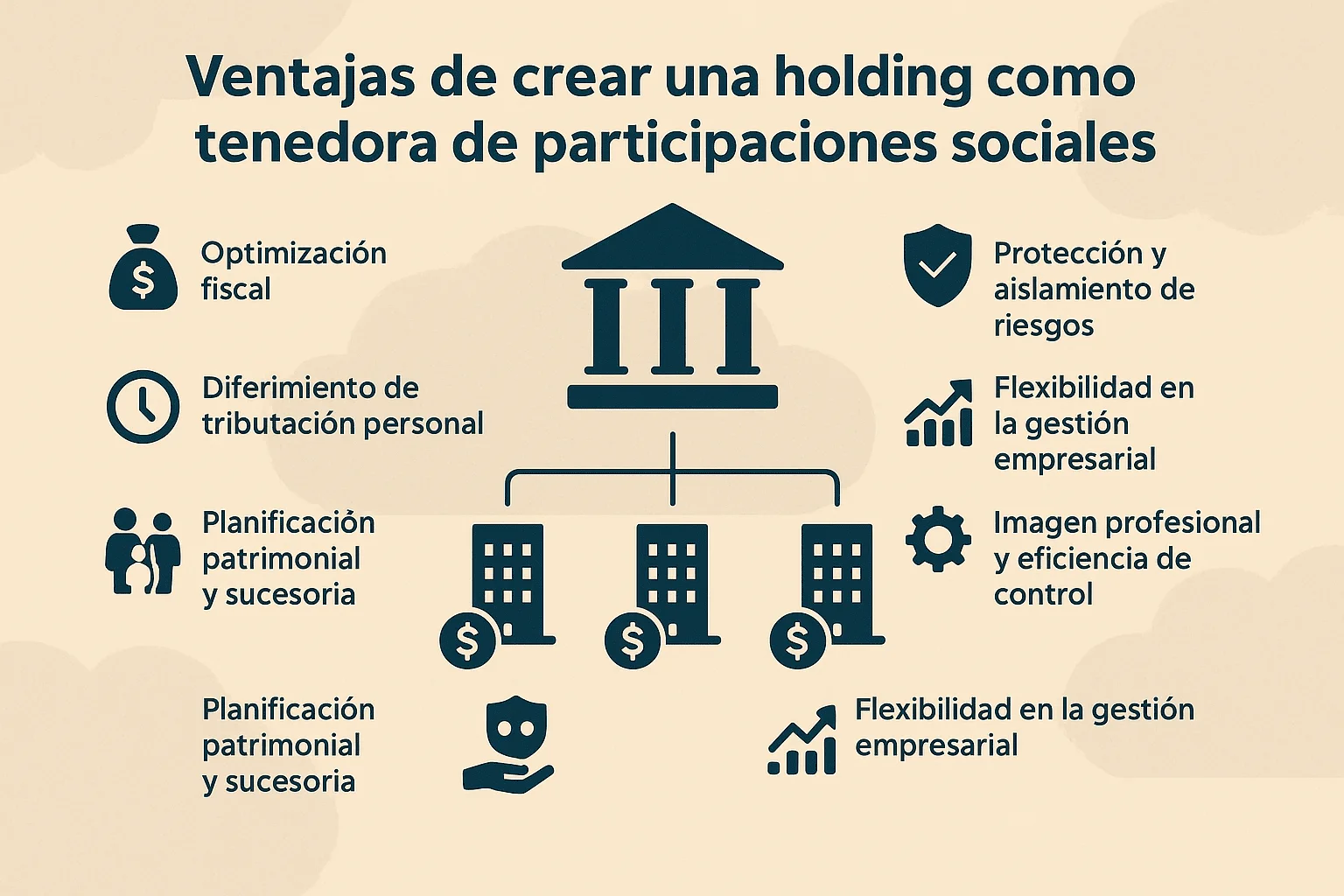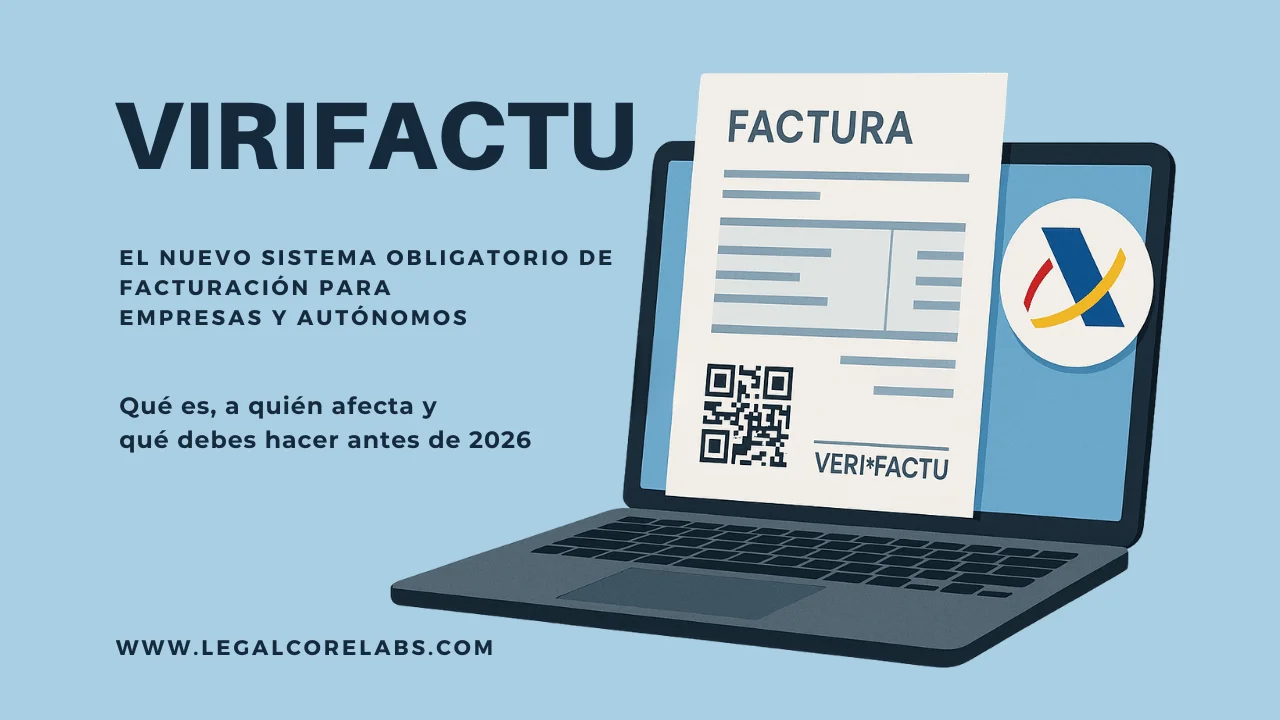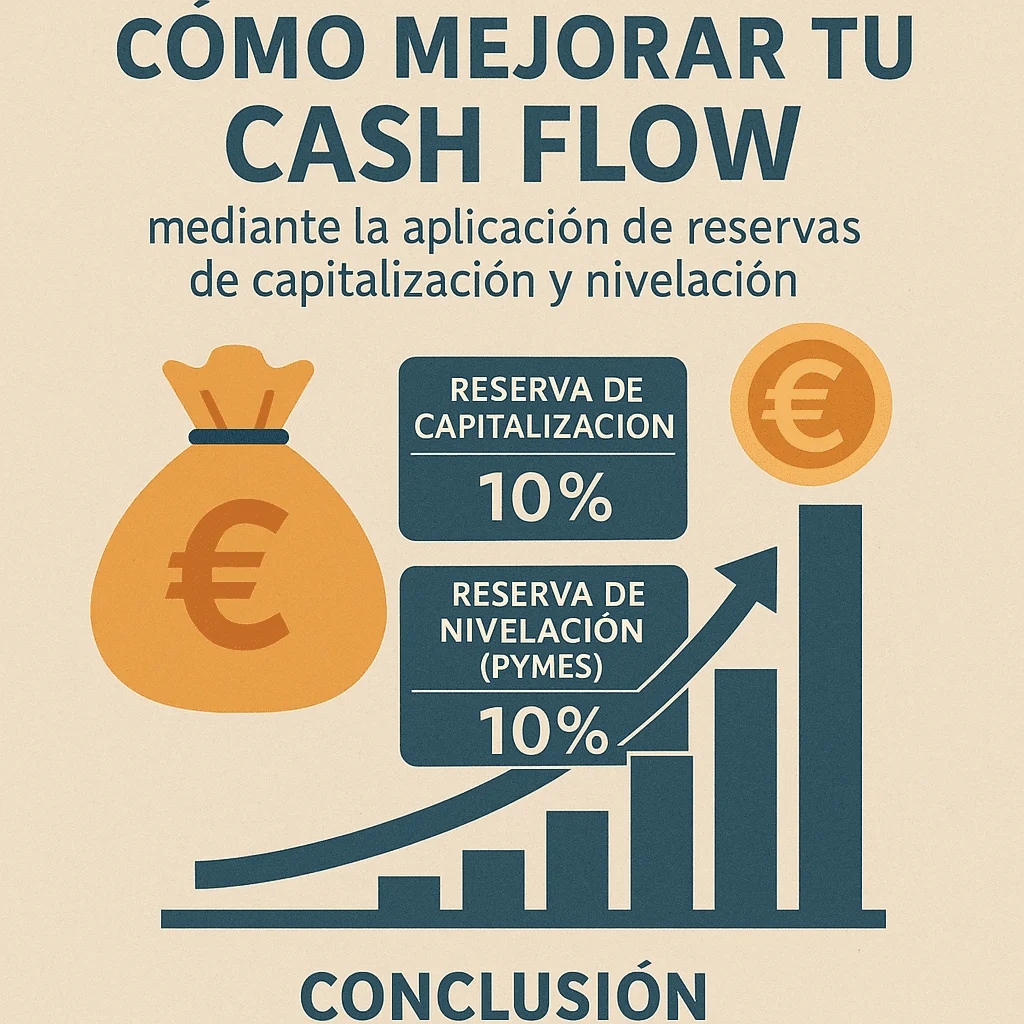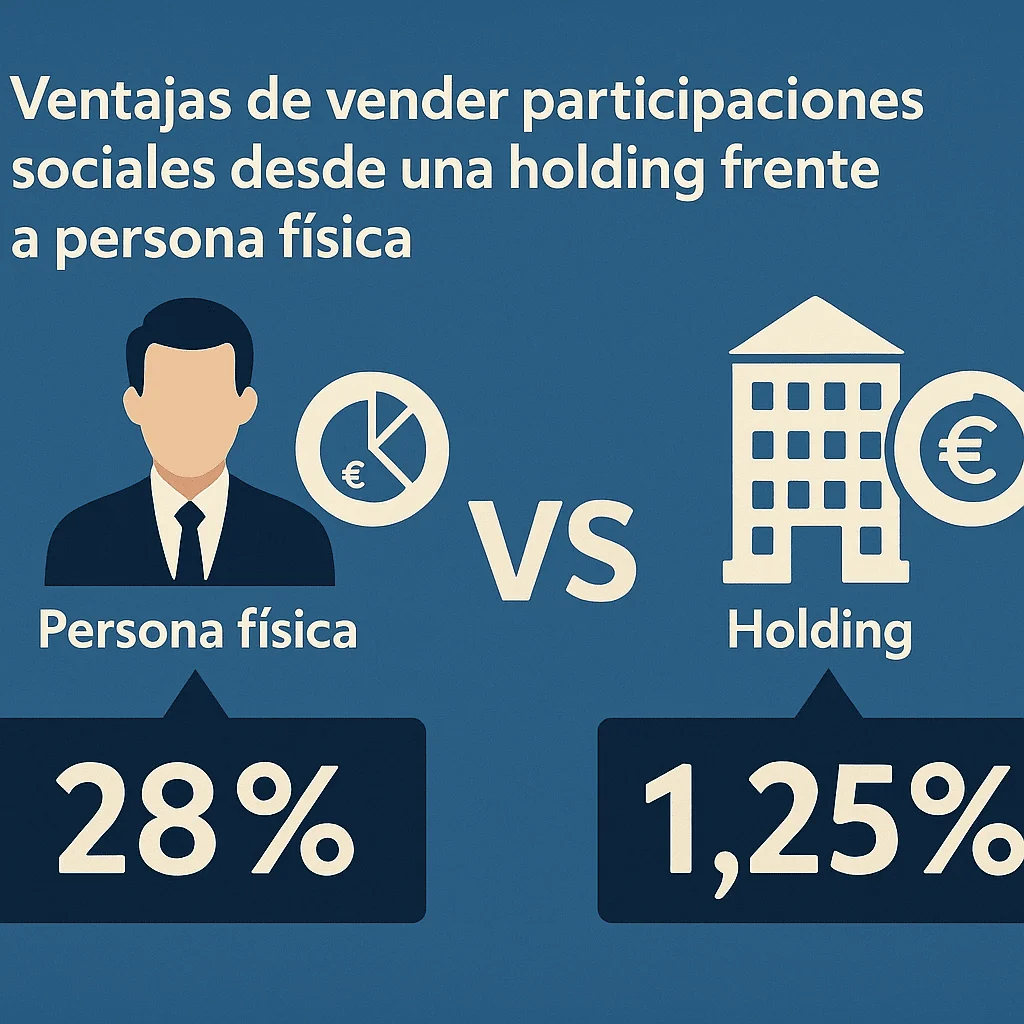Advantages of Creating a Holding Company as a Shareholder Entity
Tax Optimization
95% exemption on dividends and capital gains under Article 21 of the Spanish Corporate Income Tax Act (LIS), drastically reducing effective taxation.
Deferral of Personal Taxation
The shareholder does not pay personal income tax (IRPF) until dividends are distributed by the holding company, allowing greater control over the timing of taxation.
Sale of Subsidiary Shares
Capital gains from the sale of subsidiaries may be effectively taxed at 1.25%, instead of the 19–28% rate applicable under the IRPF for personal capital gains.
Estate and Succession Planning
Facilitates inheritance and donations through the family business regime, simplifying asset transfers and potentially reducing inheritance and gift tax burdens.
Protection and Risk Isolation
The holding company separates ownership of shares from the operational risks of subsidiaries, protecting assets from business contingencies.
Flexibility in Business Management
Allows reinvestment of profits without passing through personal income tax, consolidates results, and enables more efficient cash management among subsidiaries.
Professional Image and Control Efficiency
Centralizes management, improves oversight of subsidiaries, and projects an image of greater solvency and professionalism to third parties (investors, banks, clients).
Conclusion
Creating a holding company as a shareholder entity offers significant tax, asset, and management advantages.
It enables reduced taxation on dividends and capital gains, tax deferral, greater efficiency in subsidiary sales, asset protection, and facilitated business succession.



